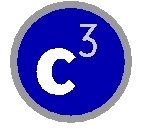
Our lives seem to be dominated by the searching for lost or unknown items. Look at the power and dependency we have on Google. Many of us cannot drive from one place to another without the use of GPS and map software. Is this due to our perpetual state of being lost? Why do we need GPS tracking tags for our stuff? Can we not keep track of our belongings?
Maybe our hearts are built to yearn for lost items. Think about it. Lost and found is the place of purgatory for single mittens, hats, water bottles, and sun glasses. These items are not discarded, yet, but are waiting for their redemption. To be found and reunited with their rightful owner and put back into proper use, is the ultimate hope. Doesn’t it feel good when the solo sick is reunited?
It is interesting that Jesus spends so much time teaching in lost and found; lost coins, lost sheep, lost treasure, lost children. This is the same deep loss and question that God utters after Adam and Eve sun, ‘Where are you?’
Repentance in Hebrew is teshuvah, but the word has other meanings as well. Teshuvah means “to return,” and it also means “answer.” This is because our answer to God’s question, “Where are you?” is to return to the path of righteousness. This is repentance, and repentance is a central theme of Rosh Hashanah.
https://www.bible.com/en/reading-plans/12652
This is the way.
The season of repentance is ultimately the opportunity for us to be found and reunited with God and with our heavenly family. Repentance frees us from the dark purgatory of lostness let’s us freely hear and see God and lets us live in harmony with our brothers and sisters in Christ.
